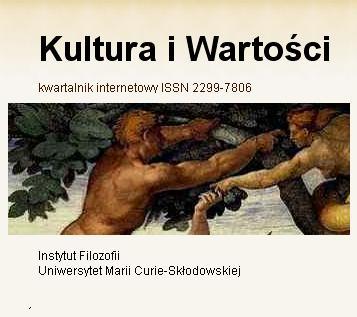Rozum w filozofii średniowiecznej
Reason in mediaevel philosophy
Author(s): Bogumił ChmielSubject(s): Philosophy
Published by: Wydawnictwo Naukowe Uniwersytetu Marii Curie-Sklodowskiej
Keywords: racjonalizm; rozum; średniowiecze; Bogumił Chmiel; filozofia średniowicza; kultura średniowieczna; mediaevel philosophy; rationalism; reason; theology
Summary/Abstract: The article discusses the principal aspects of mediaeval understanding of the nature of theoretical mind. The scholarly focus is placed upon the relationship between the mind as an autonomous cognitive faculty and the authorities of the Church, the faith, and theology. In meadiaeval philosophy, the autonomy of the mind was not contingent upon absolute independence from the above-mentioned authorities but it was realised within religious thinking forged under their direct influence. Religious tenets and dogmas were not construed in the Middle Ages as “external” limitations and impositions affecting rational thinking, which on its own was not supposed to be transgressive and defiant. Instead, tenets and dogmas served as signposts – they provided direction, scope, and aims of potential and proper philosophical endeavour. In conflictual situations, philosophers did not passively follow the authorities’ stringent guidelines but attempted to resort to a number of intellectual strategies with a view to being able to teach the questionable philosophical theses without being cast out by the clergy. The evaluative disparities regarding rationality, as present in scholarly research conducted by historians, stem primarily from the projection of Enlightenment canons of rationality onto earlier epochs
Journal: Kultura i Wartości
- Issue Year: 2013
- Issue No: 07
- Page Range: 125-147
- Page Count: 17
- Language: Polish

